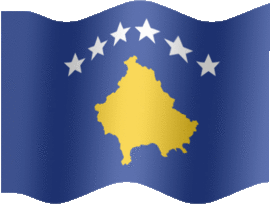
reuters
Nov 24, 2010 11:34 EST
Weeks before a parliamentary election in Kosovo that could decide the course of democratic reforms there, the European Union is struggling to decide whether to offer Pristina encouragement or reproach.
The country, a former breakaway province of Serbia, is the poorest and smallest in the Balkans and riddled with problems. Unemployment rates are near 50 percent, state institutions are weak and per capita income is just $2,500 — one of the lowest in Europe. Five EU members do not even recognise it as a state. Yet it may also hold the key to stability in a region marked by decades of ethnic conflict.
On the whole, Brussels has a clear policy towards Kosovo. It says Pristina could become an EU member, but only when ready. Exactly what steps are needed to push it along the path towards membership, and when, are the subject of debate.
The most pressing discussion in Brussels now is whether to begin talks with Pristina about visa-free travel: from the middle of December, citizens of Kosovo will be the only ones in the western Balkans who need a visa to travel to the EU.
Some EU officials say that in the next few weeks, or at least before the end of the year, the bloc’s executive Commission will starts discussions with Pristina on a roadmap on how it should fix its border and security policies to qualify for the visa-free perk. That would be an important coup for the government and a signal that Kosovo is firmly on the EU integration path.
Some proponents go further, arguing that the sooner visa dialogue starts, the better, because Kosovo needs encouragement to start important talks with Serbia on practical cooperation. Relations between Belgrade, which refuses to recognise Kosovo’s independence, and Pristina have improved somewhat in recent months after Serbia agreed to negotiations on technical issues such as customs stamps and telephone codes.
But neither side has yet to make a move towards formal talks — a critical step in efforts to soothe Balkans’ tensions — and diplomats worry they may never materialise. Kosovo policymakers could, for example, refuse to come to the table if Brussels does not launch visa dialogue, they say.
The EU home affairs chief Cecilia Malmstrom, who oversees visa policies, is reluctant to start talking about scrapping visas just yet. Illegal migration is a concern. When tourist visas were scrapped for Serbia, Macedonia and Montenegro last year, thousands left immediately, seeking better opportunities in western Europe. Requests for asylum in some EU member states from citizens of the three countries increased by as much as four times.
Kosovo may be small, with a population of about 2 million, but its citizens already make up the fifth-largest group of asylum seekers in the EU. Thousands also pay the 2,000 or 3,000 euro price demanded by smugglers to get them across borders.
Malmstrom argues Kosovo’s nascent state institutions are simply not ready to take the steps needed to secure borders and prevent passport fraud.
Delaying visa dialogue would amount to a reproach: get your house in order before you are welcome in ours.
read more: reuters
Δεν υπάρχουν σχόλια:
Δημοσίευση σχολίου